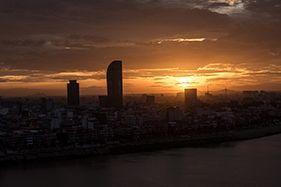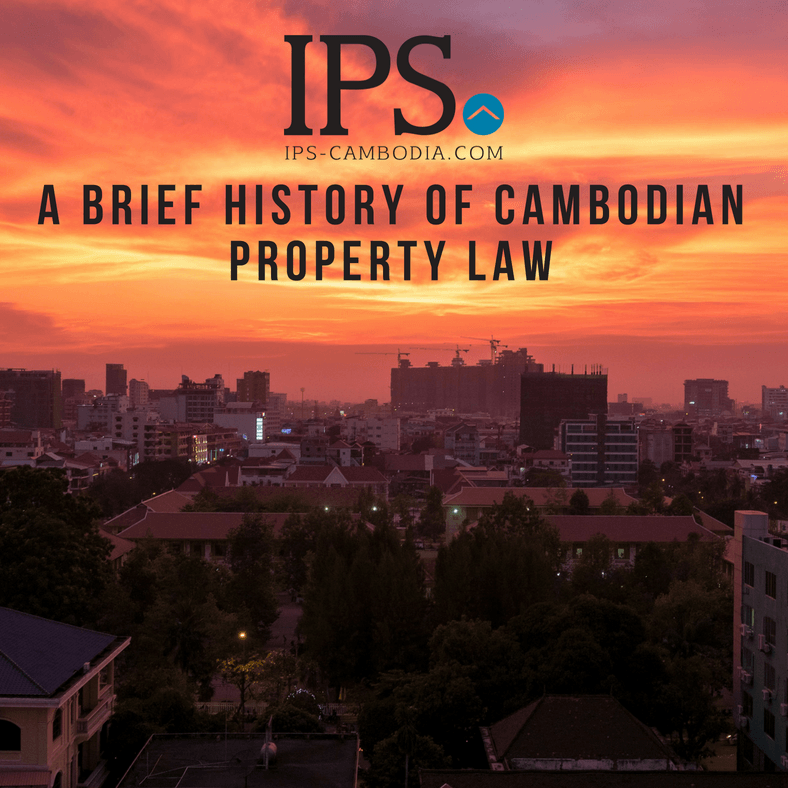Informational articles for property investors
IPS-Cambodia Country Manager Grant Fitzgerald offers a clear view of an investor’s legal rights.
When it comes to property ownership for foreigners in IPS, there’s a lot of misinformation out there. It’s easy to see how investors looking to profit from the rebuilding of Cambodia, particularly the thriving capital, can be misled. On one side, investment can be deterred by the unnecessary pessimism that insists the market lacks security, while on the opposite side, we see the dangers of over-optimism and a lack of due diligence.
With the exception of condos, foreigners are not allowed to own property in our own name whether it be a ground floor, first floor, second-floor apartment, a villa, land or any other type of property you might come across. 
Article 44 of the Cambodian Constitution states: Only natural persons or legal entity of Khmer nationality shall have the right to land ownership. Legal private ownership shall be protected by law’. So how can so many foreign investors be profiting from the property boom? Firstly, the good news is that the laws are changing and there are a number of exceptions to Article 44, with the main one being foreigners are permitted to own strata title condominiums. Add to that, options such as the commonly used ‘nominee structure’, and investment can be secure as long due diligence is adhered to in order to mitigate any risks.
Let’s take a look at a very brief history of land ownership in Cambodia. While this is just a snapshot of the key milestones, it should help new investors gain a basic understanding of the evolution of property laws since the end of the Khmer Rouge. During the Khmer rouge period (1975-1979) land and property ownership was abolished. Existing records of that time were destroyed. Following the fall of the Khmer Rouge, all property was owned by the state up until the early 90s.
Private ownership of land only became possible in 1992 when the Cambodian Government passed the land law. During this time, the local Sangkat issued ‘soft titles’ to residents. In 2001 the new land law came into effect, further strengthening an individual’s right to property ownership. This law saw the introduction of ‘hard titles’, which allowed for the registration of land at the national government level.
Cambodia’s new civil code came into effect on the 21st of December 2011 and with it the concept of co-ownership.  In the west it would be known as Strata Title ownership. In 2010 the Cambodian National Assembly passed the law of foreign property ownership, which effectively allows for foreign ownership if the apartment or condominium is above the ground floor. There has been some confusion regarding what the law allows foreigners to buy. In brief, it allows foreigners to purchase condominiums in co-owned buildings built after 2010, with up to 70% of all the units in the co-owned building allowed to be owned by foreigners.
In the west it would be known as Strata Title ownership. In 2010 the Cambodian National Assembly passed the law of foreign property ownership, which effectively allows for foreign ownership if the apartment or condominium is above the ground floor. There has been some confusion regarding what the law allows foreigners to buy. In brief, it allows foreigners to purchase condominiums in co-owned buildings built after 2010, with up to 70% of all the units in the co-owned building allowed to be owned by foreigners.
While this is not the only method of property ownership, it’s the only one officially recognised by the government, and it’s no coincidence that the development of high-rise buildings in Phnom Penh is now booming. The long forecast for the city is obviously positive considering several towering structures, built by reputable developers and boasting world-class features and security, have either hit the market recently or are due for completion within the next 18 months. For investors banking on Phnom Penh real estate prices to boom, the arrival of more expat residents and businesses, expenditure of the growing Khmer middle class, and rising population are contributing to attractive investment propositions.
Despite current low occupancy due to the sheer number of condominiums on the market, developers seem undeterred and subsequently, long-term investors are following their lead.

